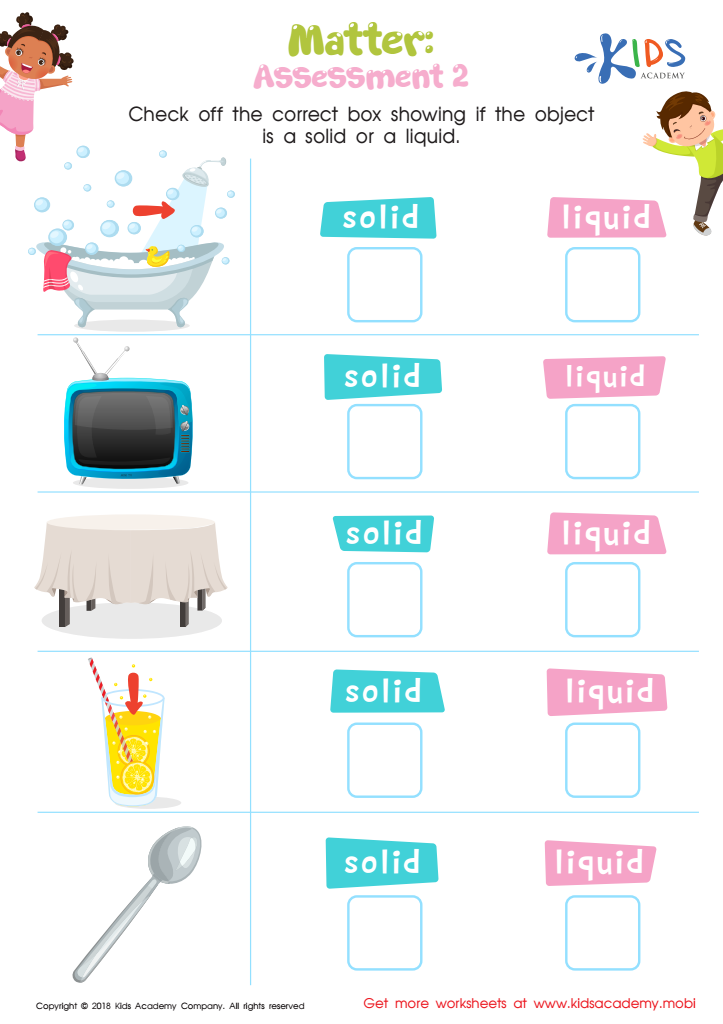Normal Science worksheets activities
10 filtered results
-
From - To


Matter: Assessment 1 Worksheet


Force and Interactions: Assessment 1 Worksheet


Space: Assessment 1 Worksheet


Ecosystems: Assessment 1 Worksheet


Light and Sound: Assessment 2 Worksheet


Animals and Plants: Assessment 2 Worksheet


Matter: Assessment 2 Worksheet


Ecosystems: Assessment 2 Worksheet


Space: Assessment 2 Worksheet


Animals and Plants: Assessment 1 Worksheet
Normal Science worksheets activities stand as an invaluable component in the educational landscape, underpinning the development of a robust scientific understanding among students. These activities, meticulously designed, serve not only as a bridge connecting theoretical science to practical understanding but also foster an environment where critical thinking and problem-solving skills can flourish.
Firstly, Normal Science worksheets activities facilitate a personalized learning experience. Every student possesses a unique learning curve, and these worksheets cater to this diversity by offering a tailored approach. They allow learners to proceed at their own pace, ensuring that the foundational concepts of Science are well understood before moving on to more complex topics. This individualized approach is crucial in retaining interest and maximizing the learning potential of each student.
Moreover, these activities encourage active participation. Unlike passive listening, working through the tasks on a worksheet compels students to engage directly with the material. This active engagement is critical for deep learning, as it ensures that students are not merely memorizing facts but are understanding and applying scientific principles. By completing these activities, students learn to analyze data, formulate hypotheses, and test their ideas - skills at the core of scientific inquiry.
Additionally, Normal Science worksheets activities offer a versatile tool for reinforcing and assessing learning. Through a variety of formats - be it fill-in-the-blanks, matching exercises, or practical experiments - these worksheets provide immediate feedback to students on their grasp of the material. For educators, they serve as a diagnostic tool to identify areas where students may be struggling, allowing for timely intervention and support.
Lastly, these worksheets prepare students for future scientific endeavors. By cultivating a methodical and inquisitive approach to learning, Normal Science worksheets activities lay the groundwork for students to tackle higher-level scientific challenges with confidence and competence.
In conclusion, Normal Science worksheets activities are more than just paperwork; they are a cornerstone in the edifice of scientific education, shaping curious minds to understand and explore the world through the lens of science.

 Assign to the classroom
Assign to the classroom












